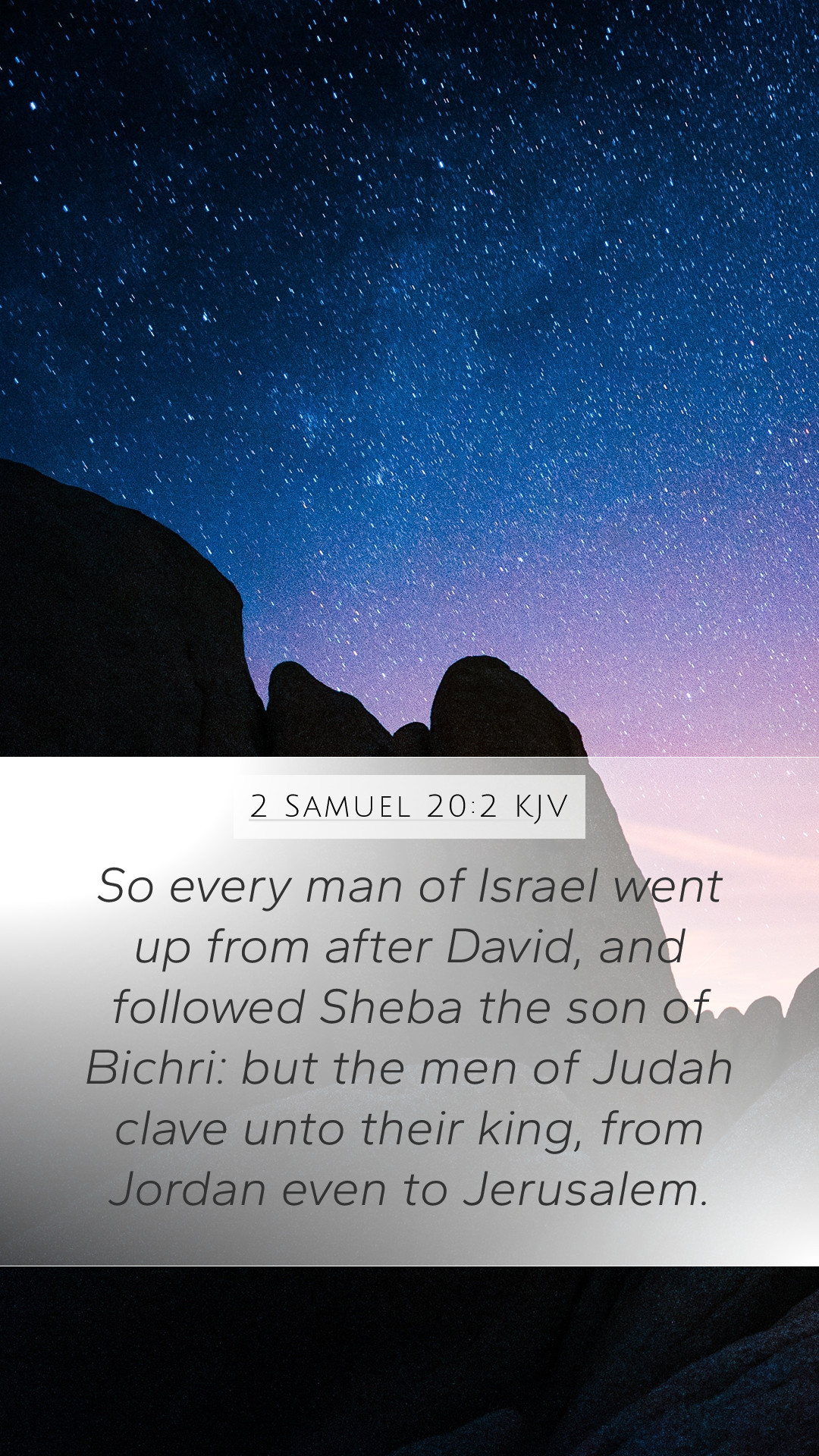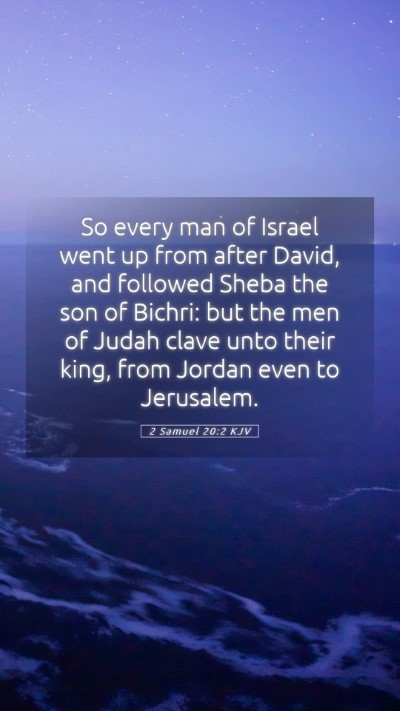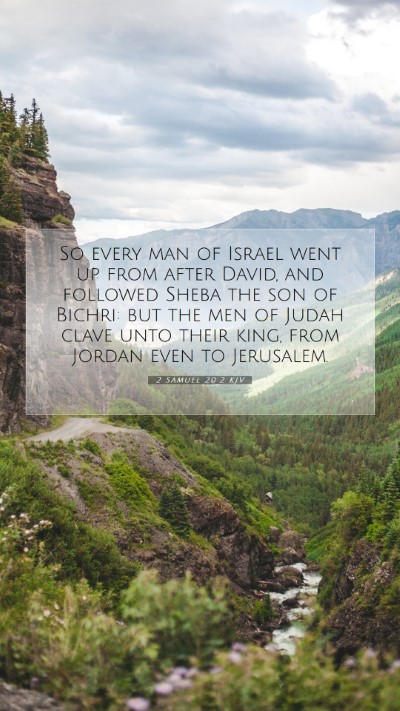Understanding 2 Samuel 20:2
2 Samuel 20:2 states, "So every man of Israel went up from after David, and followed Sheba the son of Bichri: but the men of Judah clave unto their king, from Jordan even to Jerusalem." This verse highlights a critical moment of division and loyalty during King David's reign. Here, we will explore the Bible verse meanings, Bible verse interpretations, and provide an in-depth Bible verse commentary on this passage, drawing insights from esteemed public domain commentaries.
Context of the Passage
This verse occurs in the context of political turmoil in Israel after the revolt led by Absalom. Following Absalom’s death, tension remains high, leading to a new rebellion by Sheba, which prompts a division among the tribes of Israel. Understanding the historical backdrop is essential for grasping the meaning of Bible verses like this one.
Key Insights from Commentators
-
Matthew Henry's Commentary:
Henry emphasizes the fracture within the nation, illustrating the fickleness of the people's loyalty. He explains that the call for Sheba represented a rejection of David’s kingship, showcasing the challenges David faced in maintaining unity after the preceding civil strife.
-
Albert Barnes' Notes:
Barnes notes the contrast between the tribes of Israel and Judah. He observes that while Israel was quick to follow Sheba, the men of Judah remained steadfastly loyal to David. This division is significant, as it indicates the loyalty issues that arose among the tribes and foreshadows future conflicts in Israel.
-
Adam Clarke's Commentary:
Clarke points out the importance of the phrase "clave unto their king." This indicates a deep-seated commitment by the men of Judah, reflecting an understanding of their royal covenant with David. He also emphasizes the symbolic meaning of the Jordan as a boundary not only geographically but also in terms of loyalty.
Theological Implications
The divide between Israel and Judah in this passage serves to illustrate broader themes of loyalty, community, and leadership within the Scriptures. It reflects the complexities of human relationships and the challenges leaders face in governance and the commitment of their followers. Here are a few theological reflections on this verse:
-
Loyalty to Leadership:
The willingness of the men of Judah to remain with David invites reflection on the concepts of loyalty and fidelity in leadership. This is an essential aspect of Biblical exegesis as it applies to our understanding of authority and followership.
-
Community and Division:
The division among the tribes reminds believers of the importance of unity in the body of Christ today. The Bible study insights draw from New Testament teachings on unity in the church, suggesting a significant relevance of this Old Testament passage for contemporary believers.
Application to Daily Life
This passage invites individuals and bible study groups to ponder their own commitment and loyalty to their leaders, whether secular or spiritual. How do we respond to challenges of faith and leadership that test our unity and divisiveness? These reflections can guide personal growth and communal discussions within online Bible study forums.
Cross References
For deeper understanding, consider the following Bible cross-references:
- 2 Samuel 19:40-43 - Discusses the initial loyalty of Judah towards David after Absalom's death.
- 1 Kings 12:16-20 - A reflection of the ultimate division between Israel and Judah during Rehoboam's reign.
- 1 Chronicles 12:23-40 - Chronicles the loyalty of the men of Judah and their might in supporting David.
Conclusion
2 Samuel 20:2 serves as a powerful reminder of the complexities of loyalty, leadership, and community within the biblical narrative. By exploring the interpretation of this passage through various commentaries, believers gain insight into the ongoing struggle of maintaining unity and fidelity across generations. In Bible study lessons, this verse can serve as a launching point for discussions on contemporary issues of leadership and community.


